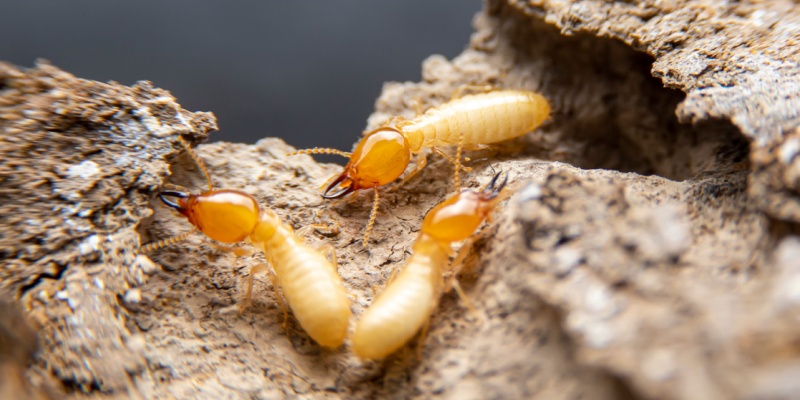Discovering termites in your home can be alarming, and you might be tempted to tackle the problem yourself to save money. While DIY methods can sometimes provide temporary relief, effectively eliminating a termite infestation often requires professional intervention. Here’s what you need to know about trying to get rid of termites on your own versus hiring a professional:
Understanding Termite Behavior
Termites are highly organized insects that live in colonies, with each member playing a specific role in maintaining the colony. Their behavior and nesting habits make them difficult to eradicate without a comprehensive approach. Drywood termites, in particular, can live deep within wooden structures, making them hard to reach with surface treatments.
Common DIY Methods
There are several DIY methods that homeowners commonly try when faced with a termite infestation:
- Boric Acid: One of the most popular DIY treatments is using boric acid. This substance can be applied to infested areas and is known to be toxic to termites. While boric acid can kill termites on contact, it often fails to reach the heart of the infestation, especially if the termites are hidden deep within walls or floors.
- Essential Oils: Some homeowners turn to essential oils like orange oil or neem oil, which are believed to repel or kill termites. These oils can be effective in treating small, localized infestations but may not be sufficient for larger colonies.
- Termite Baits: Termite bait stations can be placed around the home to attract and poison termites. While baits can reduce termite populations, they often take months to work and may not eliminate the entire colony.
- Diatomaceous Earth: This natural powder can be sprinkled around infested areas. It works by dehydrating termites, but like other DIY methods, it may not penetrate deeply enough to reach all the termites in an infestation.
Limitations of DIY Termite Control
While DIY methods can sometimes help control termite populations, they have significant limitations:
- Limited Reach: Most DIY treatments only affect termites that come into direct contact with the substance. They often fail to reach the colony’s core, allowing the infestation to persist.
- Inconsistent Results: The effectiveness of DIY methods can vary widely depending on the severity of the infestation and the termites’ nesting locations.
- Risk of Reinfestation: Without a comprehensive treatment plan, termites can quickly return, leading to recurring problems and additional costs.
When to Call a Professional
For effective termite control, professional intervention is often necessary. Here are some reasons to consider hiring a termite control specialist:
- Accurate Identification: Professionals can accurately identify the type of termite and the extent of the infestation. This is crucial for selecting the appropriate treatment method.
- Advanced Treatments: Termite control specialists have access to advanced treatments, such as whole-structure fumigation, heat treatments, and specialized termiticides that are not available to the general public.
- Comprehensive Approach: Professionals use a combination of treatments to ensure that the entire colony is eradicated, reducing the risk of reinfestation.
- Ongoing Monitoring: Many pest control companies offer ongoing monitoring services to detect new termite activity early and take preventative measures.
- Safety Considerations: Handling chemicals and treatments can pose health risks. Professionals are trained to use these substances safely and effectively, minimizing any potential hazards to you and your family.
The Cost of Professional Termite Control
While the upfront cost of professional termite control can be higher than DIY methods, it often proves to be more cost-effective in the long run. Effective treatment reduces the risk of recurring infestations and the associated repair costs. Additionally, many pest control companies offer warranties and guarantees, providing peace of mind that the problem will be resolved.
Preventative Measures
Whether you choose to tackle a termite problem on your own or hire a professional, preventative measures are crucial to protecting your home from future infestations:
- Regular Inspections: Schedule annual inspections with a termite control specialist to catch any signs of termite activity early.
- Moisture Control: Termites are attracted to moisture. Fix any leaks and ensure proper ventilation in your home to reduce humidity levels.
- Sealing Entry Points: Seal cracks and crevices in your home’s foundation, walls, and roof to prevent termites from entering.
- Wood Treatment: Consider applying termiticides to exposed wood to create a protective barrier against termites.
While DIY termite control methods can offer temporary relief, they often fall short of completely eradicating an infestation. Professional termite control specialists have the expertise, tools, and treatments necessary to eliminate termites effectively and prevent future infestations. Investing in professional help not only saves you time and effort but also protects your home from extensive and costly damage.
